
Shelagh Fogarty 1pm - 4pm
5 February 2022, 09:33
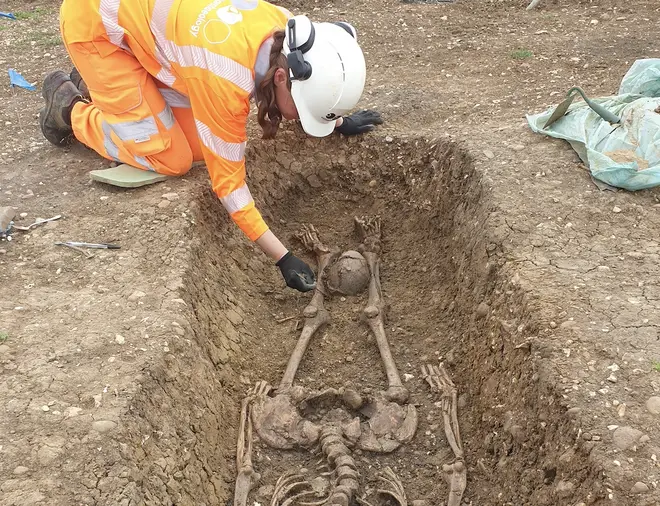
Archaeologists working with the HS2 project have made a macabre discovery – unearthing around 50 bodies whose heads had been cut off in a Roman cemetery.
About 10% of the 425 bodies found in Fleet Marston, near Aylesbury in Buckinghamshire, had their heads cut off, and a number had the head placed between their legs or near their feet.
HS2 Ltd, the group behind the high speed rail development, said this could be because those buried were criminals or a type of outcast", but decapitation was a "normal, albeit marginal" part of burials in the late Roman period – towards the end of 410AD.
The bodies are being stored for further analysis and developers are not required to rebury the remains, unlike those who are exhumed from Christian grounds as the track snakes its way towards Birmingham from London.
Read more: Robbers jailed for killing hero teenager who tried to save mother from armed intruders
Read more: 'Truly disturbing': Jimmy Carr under fire for Holocaust and Traveller joke
The cemetery, the largest of its kind in Buckinghamshire, may have been organised by tribe, family and ethnicity.
The excavations have allowed researchers to discover more about life in Roman Britain, with the 50-strong team of archaeologists finding evidence of domestic structures and commercial activity.
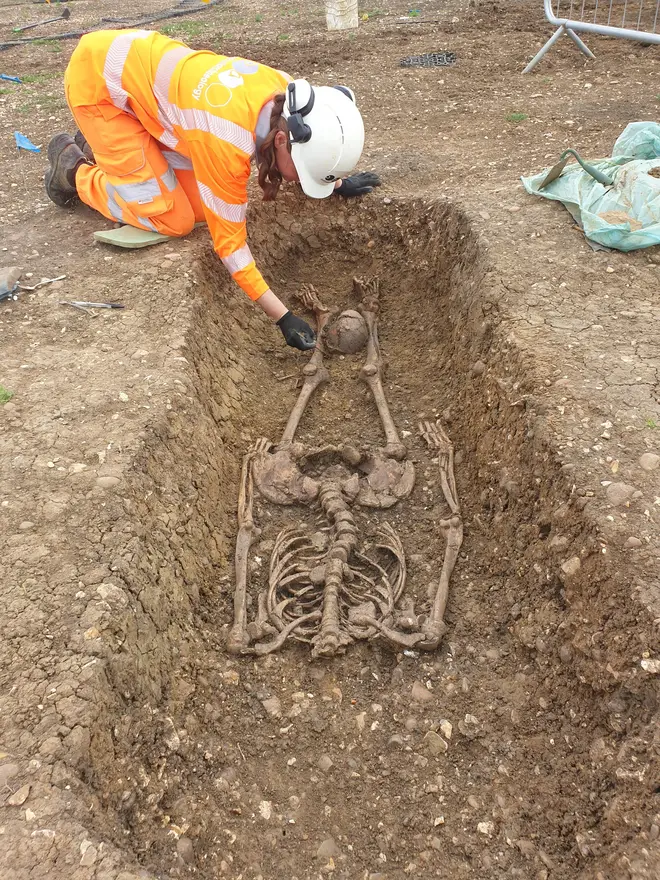
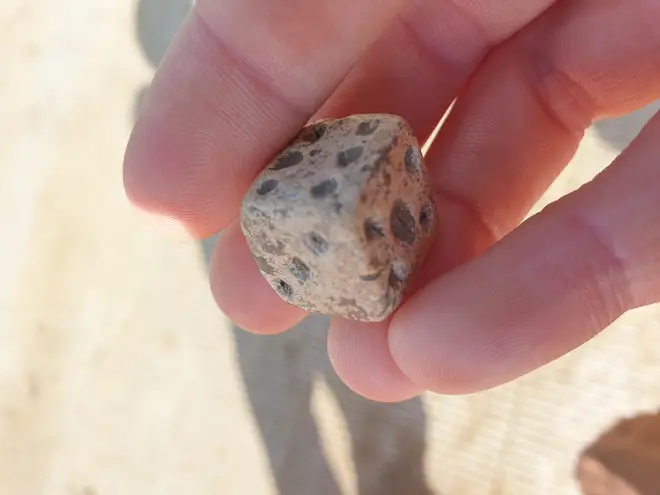
These include a ladder-like system of enclosures off Akeman Street, a major Roman road linking the old capital of St Albans with Cirencester, and more than 1,200 coins along with lead weights.
Spoons, pins and brooches were discovered along with gaming dice and bells.
Richard Brown, senior project manager for Cotswold Archaeology and Oxford Archaeology, said: "The excavation is significant in both enabling a clear characterisation of this Roman town but also a study of many of its inhabitants.
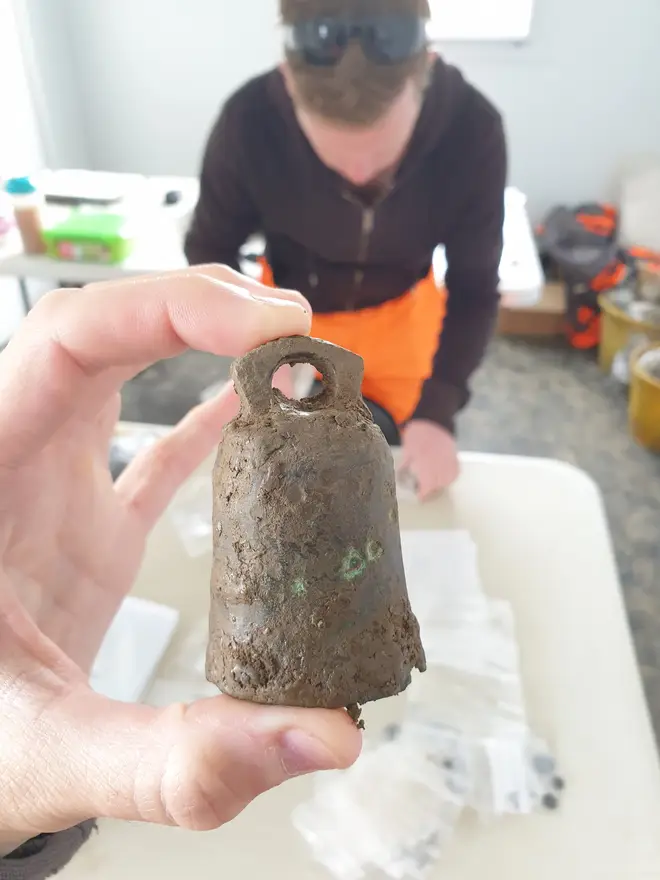
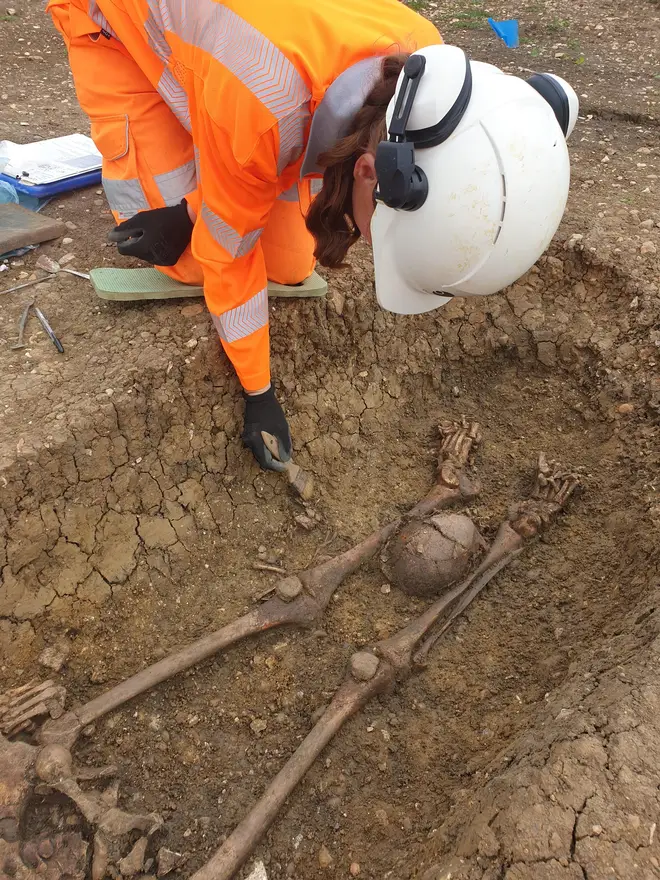
"Along with several new Roman settlement sites discovered during the HS2 works it enhances and populates the map of Roman Buckinghamshire."
More than 100 archaeological sites have been established as part of HS2 since 2018.
Helen Wass, head of heritage at HS2 Ltd, said: "All human remains uncovered will be treated with dignity, care and respect and our discoveries will be shared with the community. HS2's archaeology programme seeks to engage with all communities both local and nationally to share the information and knowledge gained as well as leaving a lasting archival and skills legacy."